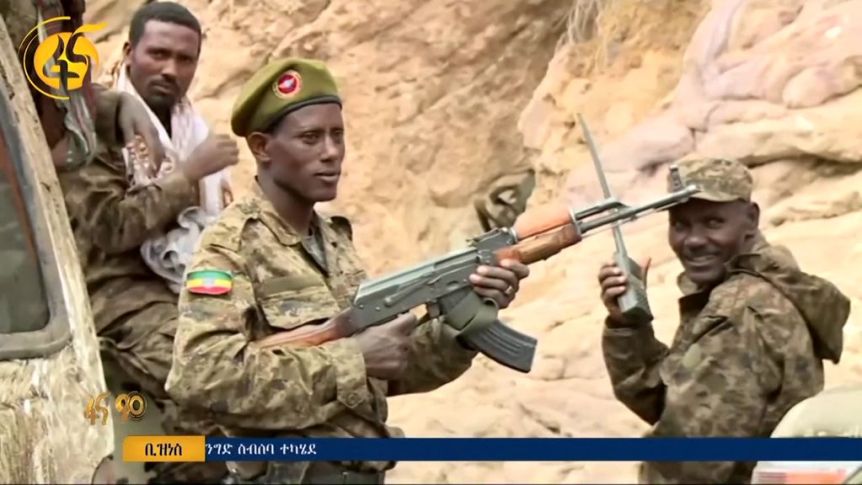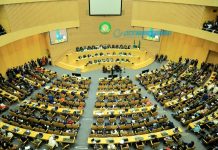Africa-Press Etgiopia
Contradicting claims from Ethiopian authorities, a senior military leader confirmed that military forces were deployed from neighboring Eritrea during the conflict in the Tigray region.
Ethiopia’s Maj. Gen. Belay Seyoum’s comments confirming the military presence were published Wednesday.
“An alien army, we didn’t want, came in,” Seyoum said in the translated remarks. “We know the problems that are being raised. It’s painful, but who let them in?” Seyoum emphasized that the forces were not welcome, adding: “My conscience does not allow me to say, ‘Eritrean army, come and help us!’ We can solve our own problems on our own.”
Tigray is the northernmost region of Ethiopia, bordering Eritrea to the north and Sudan to the west. Tens of thousands of Tigrayans have fled the country into Sudan amid violence that has raged since Nov. 4, when Ethiopian Prime Minister Abiy Ahmed began a military assault after accusing the Tigray People’s Liberation Front of attacking federal troops at a military base. In September, Tigray held what Abiy called an “illegal” election in which the TPLF won 98% of the vote and all 152 seats that were contested, according to the BBC.
The United States had suspected that Eritrean forces had been deployed to the region, according to the Associated Press, but Ethiopian officials repeatedly denied the accusation. Ahmed tweeted in November that Ethiopia’s own forces had “completed and ceased military operations in the #Tigray region,” and in December, Abiy “guaranteed” that forces from Eritrea had never entered the Tigray region.
Abiy was awarded the Nobel Peace Prize in 2018 for making peace with Eritrea.
Eritrea has been described as “one of the world’s most repressive countries” and is a longtime rival of the Tigray People’s Liberation Front — a far-left political party that previously held the majority in the Ethiopian government and still has broad support in the Tigray region.
At the height of the Tigray conflict, communication with the nearly 6 million people in the region was “almost completely severed,” and the United Nations was unable to send aid to the region for nearly a month. Some feared “the atrocities that might emerge once transportation and other links are restored.”






